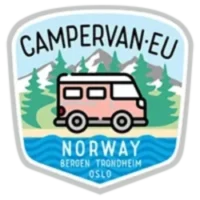
Understanding the Different Types of Campers
When embarking on an adventure, selecting the right camper is crucial for a fulfilling experience. There are several types of campers available, each featuring unique characteristics tailored to different travel styles and needs. Understanding these variations can significantly influence your overall journey.
Firstly, traditional campers, often referred to as travel trailers or fifth wheels, are designed to be towed by vehicles. They range in size, accommodating various capacities from a couple to larger families. Traditional campers come equipped with essential amenities such as kitchens, bathrooms, and sleeping areas, making them ideal for longer trips where comfort is paramount. However, their towing requirements and the need for suitable parking spaces can be a disadvantage for some travelers.
Next, minicamper vans have gained popularity among younger adventurers and those seeking a simpler, more agile experience. These compact vehicles are typically easy to maneuver and park, making them suitable for both urban exploration and nature escapades. Minicamper vans often feature a convertable interior, providing flexible sleeping arrangements and basic kitchen facilities. Nevertheless, their size may impact the comfort level for larger groups or extended travels.
Larger vans, akin to motorhomes, offer the benefits of more space and amenities. They can accommodate families and groups comfortably and often come with features like multiple sleeping areas, spacious living rooms, and even slide-outs that expand the internal space. While they provide more comfort, larger vans can be less fuel-efficient and may present challenges in accessing smaller campsites.
By evaluating the pros and cons of traditional campers, minicamper vans, and larger vans, you can better identify the right option for your travel needs. Each type has its strengths, allowing you to tailor your adventure experience while optimizing comfort and convenience.
Cost Considerations and Budgeting for Your Camper
When embarking on the journey of choosing the perfect camper for your adventurous travels, it is essential to understand the financial implications involved. The costs associated with campers can vary widely, depending on whether one opts to purchase, rent, or maintain a camper. For potential buyers, the initial purchase price typically includes not only the cost of the camper itself but also any additional expenses such as taxes, registration, and potential loan interest. On the other hand, renting a camper can provide greater flexibility if the travel plans are more sporadic, but rental fees can add up quickly, especially for long-term trips.
Maintenance costs are another vital aspect of camper budgeting. Regular upkeep, including servicing the engine, checking brakes, and ensuring the plumbing is functioning correctly, can represent a significant part of overall expenses. Additionally, camper enthusiasts should not overlook the costs associated with accessories, insurance, and storage. It is advisable to estimate these expenses before deciding on a camper type, as this can greatly affect the financial sustainability of your adventure.
Establishing a budget tailored to your financial condition and travel objectives is crucial. Begin by determining how much you can comfortably allocate for camper ownership or rental without overstretching your finances. Consider past travel experiences to gauge how often you plan to use the camper. For those who choose to buy, researching various financing options can help in identifying the most economically viable solution. As you formulate your budget, be vigilant about hidden costs, such as repair services or parts replacement, which can arise unexpectedly throughout your camper ownership journey.
In conclusion, understanding the total cost of owning or renting a camper requires a comprehensive analysis of both upfront and ongoing expenses. By approaching the budgeting process thoroughly, you can ensure that your choice aligns well with your financial resources, allowing for an enjoyable and economical travel experience.
Money-Saving Tips for a Budget-Friendly Road Trip
Planning a road trip in a camper can be an exciting yet daunting task, especially when considering the associated costs. However, with some practical strategies, you can enjoy an adventurous journey without overspending. One key area to focus on is meal preparation. Cooking your own meals can significantly reduce expenses compared to dining at restaurants. Invest in a portable stove and stock your camper with essential cooking supplies. Easy-to-make meals such as pasta, stir-fries, and sandwiches not only save you money but also allow for healthier eating options while on the road.
Another avenue to save money is through finding free or low-cost camping spots. Numerous websites and apps offer databases of campgrounds and overnight parking sites. Utilizing services like Campendium and AllStays can lead you to hidden gems where you can set up camp at little or no cost. National forests and Bureau of Land Management lands often have dispersed camping options, which provide a chance to experience nature without the hefty fees associated with commercial campsites.
Fuel efficiency is also a critical factor to consider when aiming to save money on your camper road trip. Regular maintenance, such as ensuring your tires are properly inflated and your engine is in good shape, can help improve fuel economy. Additionally, planning your route to avoid unnecessary detours and using apps to track fuel prices can lead to significant savings. Apps like GasBuddy help in locating the cheapest fuel options along your journey.
Finally, take advantage of various travel apps that offer discounts on activities, entrance fees, and accommodations. Websites like Groupon and Travelzoo can provide valuable deals that allow you to explore attractions at a reduced cost, further stretching your travel budget. By following these practical tips, you can make your camper road trip enjoyable and financially manageable, allowing you to traverse the open road with confidence.
Real Customer Experiences: Testimonials and Insights
Many travelers have discovered the joy and freedom that comes with venturing out in a camper. Their personal accounts serve as a testament to the unique experiences that this mode of travel provides. One happy camper, Sarah, shares how her first journey in a rented camper transformed her perspective on travel: “I never realized how much I would appreciate the ability to wake up with an ocean view. Each morning brought a new adventure, yet I always felt at home in my camper.” Such narratives highlight the beauty of flexibility and comfort that a camper can offer.
Another traveler, Mike, reflected on the lessons learned during his trip: “I underestimated the planning required for long road trips. It taught me the importance of preparing ahead—finding campsites, checking fuel stations, and packing essentials. But the reward was worth it, as we explored hidden gems off the beaten path.” Mike’s experience emphasizes the significance of careful planning while enjoying the spontaneity that comes with camper travel.
Moreover, Emily shares the unexpected challenges she faced with her family during their camping adventure. “We encountered a few technical difficulties with our camper, which could have been frustrating, but it actually brought us closer as a family. We learned to problem-solve together and enjoyed the outdoor moments while the issues were being fixed.” Such stories illustrate that challenges in camper travel can lead to valuable bonding experiences and personal growth.
Finally, John captures the essence of adventure: “Traveling in a camper has allowed me to reconnect with nature and embrace the outdoors like never before. There’s something gratifying about parking up at a secluded spot and enjoying a quiet evening under the stars.” These real-life testimonials encompass the joys, lessons, and challenges faced by other camper enthusiasts, painting a vivid picture of what one can expect from such thrilling adventures.
